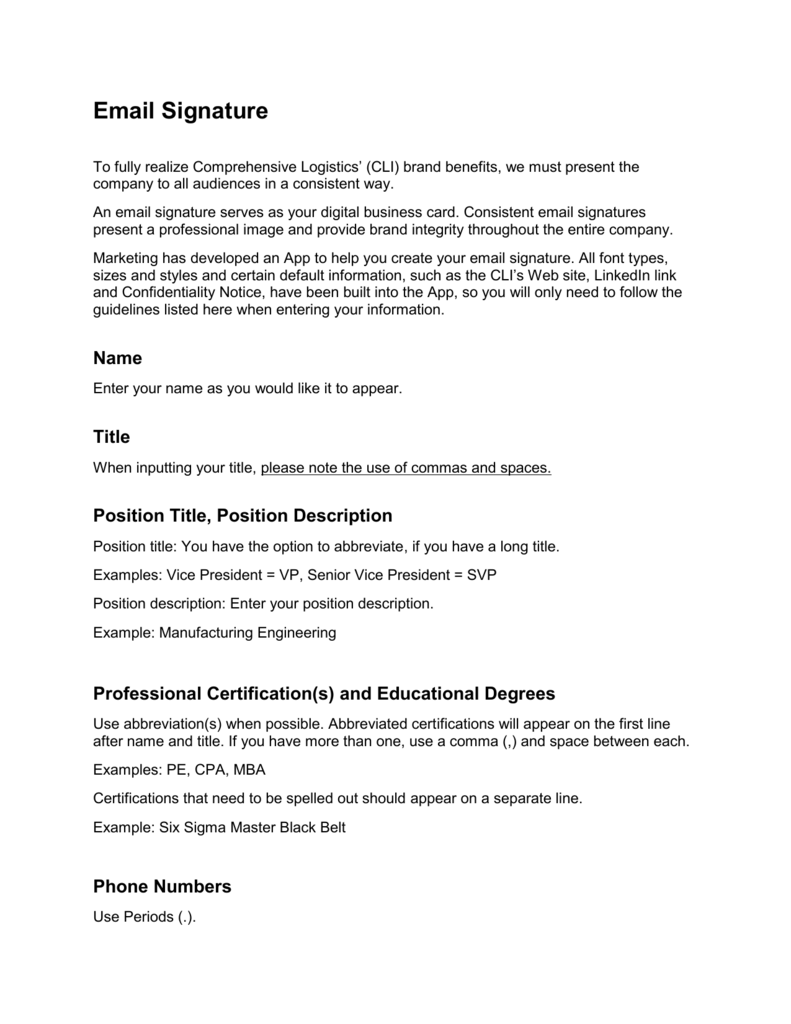
(12) Certified Foreign Records of a Regularly Conducted Activity.
#Police sergeant email signature examples trial#
Before the trial or hearing, the proponent must give an adverse party reasonable written notice of the intent to offer the record - and must make the record and certification available for inspection - so that the party has a fair opportunity to challenge them. The original or a copy of a domestic record that meets the requirements of Rule 803(6)(A)-(C), as shown by a certification of the custodian or another qualified person that complies with a federal statute or a rule prescribed by the Supreme Court.

(11) Certified Domestic Records of a Regularly Conducted Activity. A signature, document, or anything else that a federal statute declares to be presumptively or prima facie genuine or authentic. (10) Presumptions Under a Federal Statute. Commercial paper, a signature on it, and related documents, to the extent allowed by general commercial law. (9) Commercial Paper and Related Documents. A document accompanied by a certificate of acknowledgment that is lawfully executed by a notary public or another officer who is authorized to take acknowledgments. An inscription, sign, tag, or label purporting to have been affixed in the course of business and indicating origin, ownership, or control. Printed material purporting to be a newspaper or periodical. A book, pamphlet, or other publication purporting to be issued by a public authority.

(B) a certificate that complies with Rule 902(1), (2), or (3), a federal statute, or a rule prescribed by the Supreme Court. (A) the custodian or another person authorized to make the certification or A copy of an official record - or a copy of a document that was recorded or filed in a public office as authorized by law - if the copy is certified as correct by: (B) allow it to be evidenced by an attested summary with or without final certification. (A) order that it be treated as presumptively authentic without final certification or If all parties have been given a reasonable opportunity to investigate the document’s authenticity and accuracy, the court may, for good cause, either: The certification may be made by a secretary of a United States embassy or legation by a consul general, vice consul, or consular agent of the United States or by a diplomatic or consular official of the foreign country assigned or accredited to the United States. The document must be accompanied by a final certification that certifies the genuineness of the signature and official position of the signer or attester - or of any foreign official whose certificate of genuineness relates to the signature or attestation or is in a chain of certificates of genuineness relating to the signature or attestation. A document that purports to be signed or attested by a person who is authorized by a foreign country’s law to do so. (B) another public officer who has a seal and official duties within that same entity certifies under seal - or its equivalent - that the signer has the official capacity and that the signature is genuine.

(A) it bears the signature of an officer or employee of an entity named in Rule 902(1)(A) and (2) Domestic Public Documents That Are Not Sealed but Are Signed and Certified. (B) a signature purporting to be an execution or attestation. (A) a seal purporting to be that of the United States any state, district, commonwealth, territory, or insular possession of the United States the former Panama Canal Zone the Trust Territory of the Pacific Islands a political subdivision of any of these entities or a department, agency, or officer of any entity named above and

(1) Domestic Public Documents That Are Sealed and Signed. The following items of evidence are self-authenticating they require no extrinsic evidence of authenticity in order to be admitted:


 0 kommentar(er)
0 kommentar(er)
